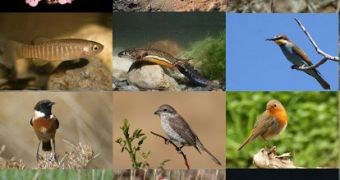A few days ago, we talked about how freedom of the press – provided that it is genuine and not just make-believe – can foster green-oriented behaviors.
A new study now argues that democracy – citizens' being able to get involved in decision making, to be more precise – also brings about benefits when it comes to safeguarding threatened and endangered species.
Thus, Berry Brosi from the Emory University and Eric Biber from the University of California, who specialize in environmental studies and environmental law, respectively, argue that ever since the US Endangered Species Act first came into being, ordinary folk have been much more efficient than the Fish and Wildlife Service in terms of ringing the alarm with respect to the need to introduce various conservation projects.
EurekAlert reports that American citizens do a much better job of pinning-down the plant and animal species that are going through some hard time as a result of changes in their environmental conditions, and do not shy away from filing petitions asking that said species benefit from legal protection.
What is even more interesting is that, according to this new research, American citizens have a 'natural gift' of asking for protection for plant and animal species whose being threatened or endangered can be linked to plans for development in various regions across the country.
To put it bluntly: if various industrial booms or expansions of urban landscape are likely to negatively impact on already suffering plant or animal populations, ordinary folk are the first to identify the threat and react accordingly.
As Berry Brosi explains, “We found that citizens, on average, do a better job of picking species that are threatened than does the Fish and Wildlife Service. That's a really interesting and surprising finding.”
Eric Biber stands by this previous statement, explaining how, “If there were restrictions on the number of citizen-initiated petitions being reviewed, the government would lose a whole universe of people providing high-quality information about species at risk, and it is likely that many species would be left unprotected.”
Given the fact that North America is presently home to about 100,000 plant and animal species, it comes as good news that the country's citizens are willing to get actively involved in making sure that whatever development projects find themselves implemented do not harm the country's biodiversity.

 14 DAY TRIAL //
14 DAY TRIAL //